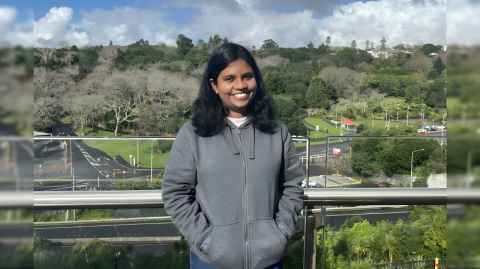Smart Hospitals using DAOs: The Future of Healthcare
Aakanksha, a PhD candidate, discusses the potential advantages of incorporating Decentralized Autonomous Organizations (DAOs) in the healthcare sector.

In smart hospitals, clinical processes and management systems are optimised and redesigned. New clinical processes are built based on an underlying network of interconnected assets to improve patient care, experience, and operational efficiency. Smart hospitals are needed to connect assets and resources throughout the hospital environment for near-real-time data access and analysis, inform and expedite patient journeys, enhance operational efficiencies, and maximise resource utilisation for improved experiences and outcomes. The seamless integration across technology provided by smart hospitals aids in healthcare delivery, allowing the hospitals to provide the kind of care people expect from medical institutions.
One of the benefits of smart hospitals is the ability to translate massive amounts of data into usable insights to inform and accelerate decisions, provide more tailored treatment, and cut costs. Sensor and other digital asset data are fully integrated, allowing for enhanced visibility into resource utilisation and better management of variable caseloads.
Another benefit of smart hospitals is the integration of specialised departments, primary care physicians, and other healthcare venues, which enables patients to receive the appropriate care at the appropriate time and location, anywhere in the community. Connecting systems, devices, assets, data, and people improve patient experiences and results.
Smart hospitals also help streamline supply chain issues at the hospital. A stable supply chain enables healthcare professionals to provide excellent patient care and customer value. There is less waste. Lean stocks, operational efficiency, and product expiration control can help safeguard patients while lowering liability costs.
Among the many industries, healthcare has been identified as one of the important sectors that could benefit from using Decentralised Autonomous Organisations (DAOs). Healthcare DAOs help create a more efficient and cost-effective healthcare system. Healthcare DAOs provide a more individualised approach to healthcare delivery and redefine how members access and engage with the healthcare system.
One of the examples of healthcare DAO is VitaDAO. VitaDAO operates on the Ethereum blockchain. It aims to bring together scientists, researchers, and investors to advance the field of longevity research and promote the development of life-extending therapies. VitaDAO combines the principles of blockchain technology and tokenisation with the goal of accelerating scientific research and discovery in the field of ageing and longevity.
Members of VitaDAO can propose and vote on research projects to be funded by the organisation. The projects can include various scientific initiatives, such as drug discovery, genetic research, and clinical trials, specifically focusing on longevity-related areas.
To fund these projects, VitaDAO issues its native cryptocurrency tokens called VITA tokens. Token holders can participate in decision-making, including project selection and resource allocation. Additionally, the tokens provide a financial stake in the organisation’s success, as any returns generated from the research projects may be distributed back to token holders.
By leveraging the decentralised nature of blockchain technology and the collective intelligence of its members, VitaDAO aims to foster collaboration and accelerate breakthroughs in longevity research, ultimately contributing to the development of therapies that can extend human lifespan and improve overall health.
With a focus on addressing specific pain points, our study delves into the transformative power of DAOs within the healthcare landscape. Our study aims to answer key questions that have the potential to reshape the healthcare industry for the better and provide valuable insights into how DAOs can revolutionise healthcare, presenting opportunities to enhance hospital car parking systems, optimise long-term planning, and enable seamless coordination between hospitals. By harnessing the power of DAOs, the healthcare industry can unlock new possibilities, paving the way for a more resilient and patient-centric future.
Aakanksha is a PhD candidate at the Department of Information Systems and Operations Management, University of Auckland Business School.